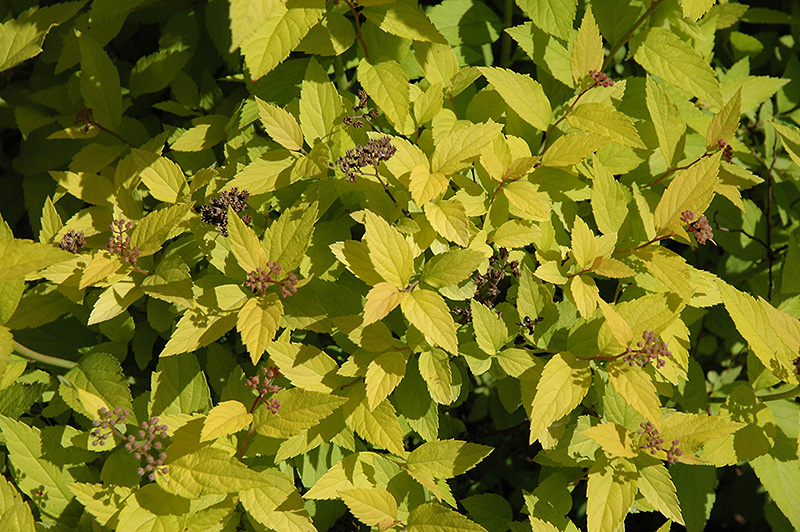Plant Search Tool
This is a 3rd party Knowledgebase and does not reflect actual stock
Candle Light Spirea
Spiraea x bumalda 'Candle Light'
Height: 3 feet
Spread: 3 feet
Sunlight:
![]()
Hardiness Zone: 4a
Other Names: Spiraea japonica
Description:
Rich yellow spring foliage matures to a soft candlelight yellow in summer; fall color is a lovely bright golden hue; clusters of lilac colored flowers contrast with the bright foliage; perfect for mixed borders or decorative containers
Ornamental Features
Candle Light Spirea features showy clusters of lilac purple flowers at the ends of the branches from late spring to early summer. It has attractive buttery yellow foliage with hints of chartreuse which emerges yellow in spring. The small serrated pointy leaves are highly ornamental and turn an outstanding gold in the fall.
Landscape Attributes
Candle Light Spirea is a multi-stemmed deciduous shrub with a more or less rounded form. Its relatively fine texture sets it apart from other landscape plants with less refined foliage.
This shrub will require occasional maintenance and upkeep, and is best pruned in late winter once the threat of extreme cold has passed. It is a good choice for attracting butterflies and hummingbirds to your yard, but is not particularly attractive to deer who tend to leave it alone in favor of tastier treats. It has no significant negative characteristics.
Candle Light Spirea is recommended for the following landscape applications;
- Mass Planting
- General Garden Use
Planting & Growing
Candle Light Spirea will grow to be about 3 feet tall at maturity, with a spread of 3 feet. It tends to fill out right to the ground and therefore doesn't necessarily require facer plants in front. It grows at a fast rate, and under ideal conditions can be expected to live for approximately 20 years.
This shrub should only be grown in full sunlight. It prefers to grow in average to moist conditions, and shouldn't be allowed to dry out. It is not particular as to soil type or pH. It is highly tolerant of urban pollution and will even thrive in inner city environments. This particular variety is an interspecific hybrid.






